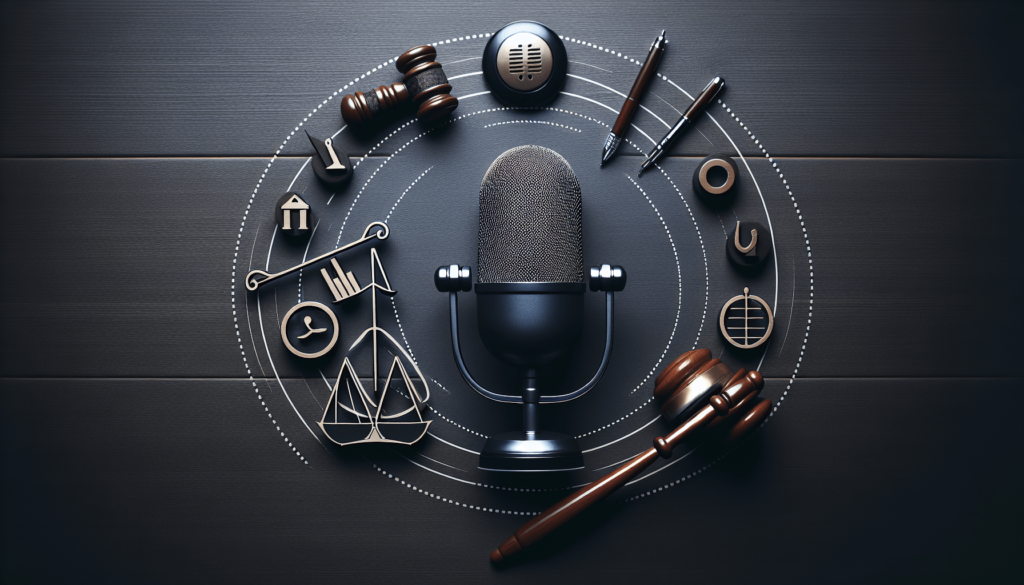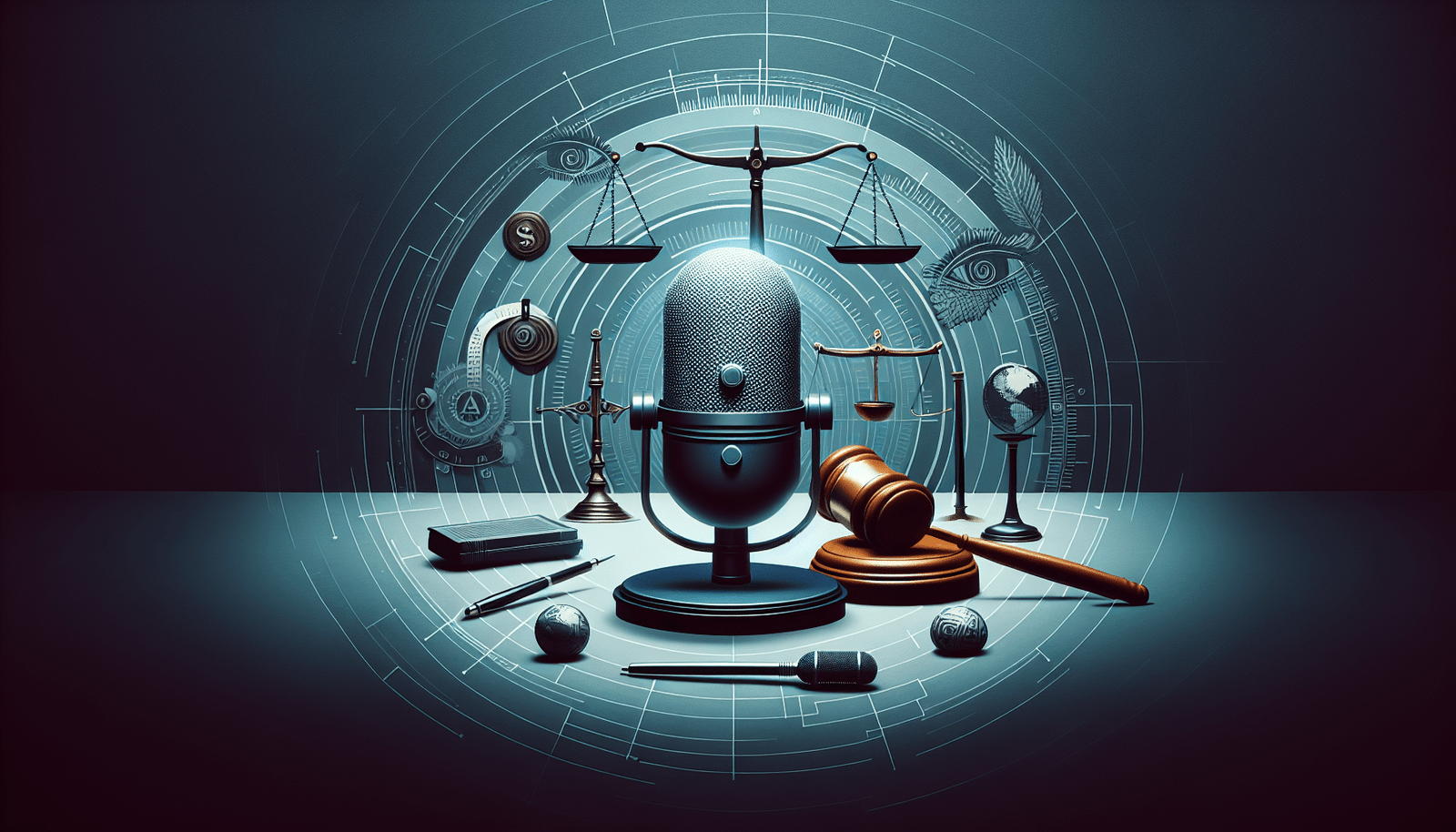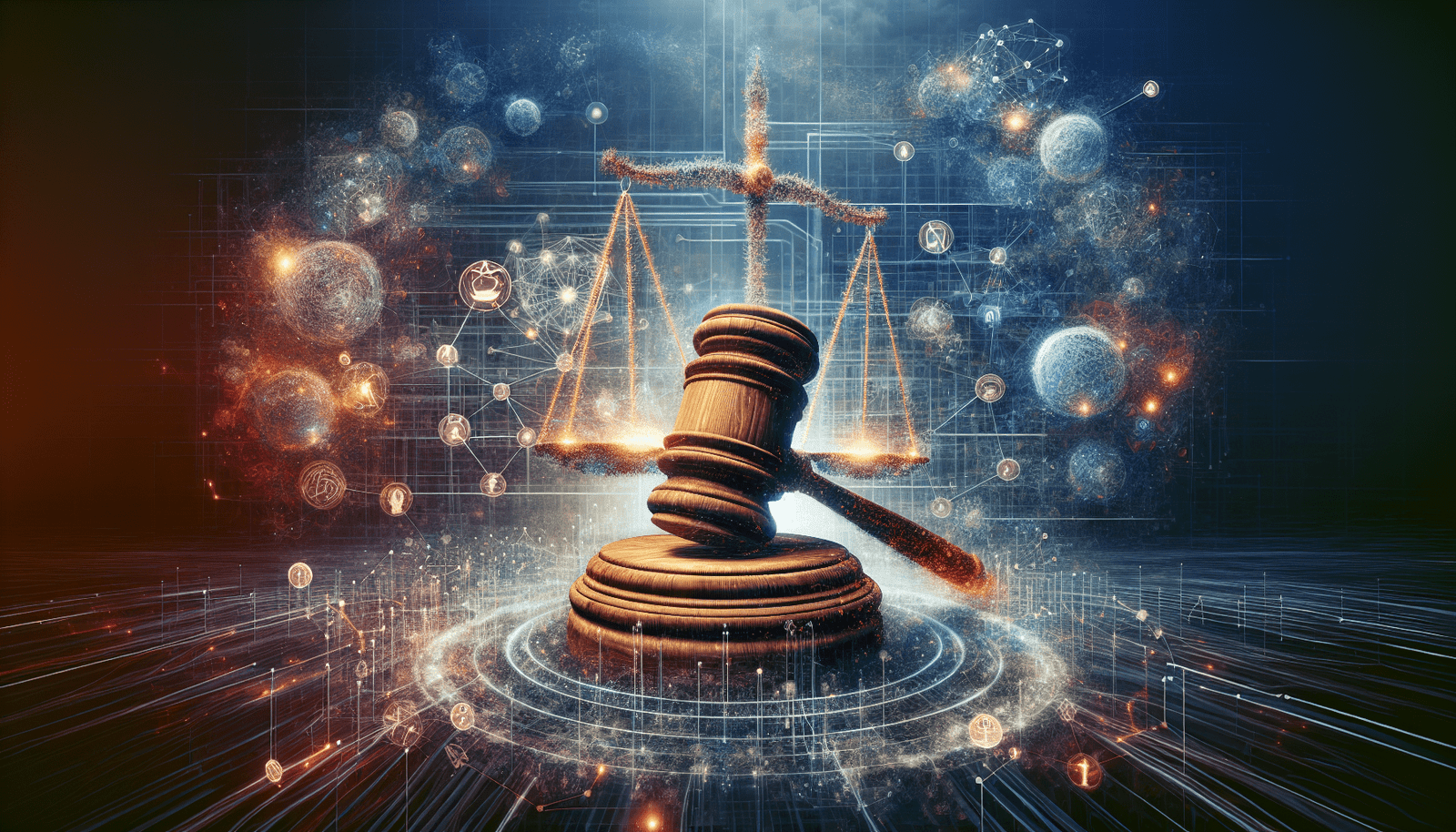When it comes to podcasting, the potential for defamation is a significant concern, which makes having effective mitigation strategies crucial for any podcaster. In my article, I delve deep into practical steps and legal guidelines that can help podcasters safeguard themselves against defamation risks. From understanding what constitutes defamation to implementing practical risk management techniques, I’ll provide a comprehensive overview that combines expert advice, humorous anecdotes, and real-world examples to keep things light and engaging. Trust me, you won’t want to hit “record” on your next episode without reading this guide first! Have you ever wondered how podcasters handle the potential pitfalls of defamation in their shows? It’s a delicate balance, for sure. Just a few ill-chosen words can turn a fun, informative podcast into a legal nightmare. Picture yourself, mic in hand, ready to share yet another intriguing episode, and suddenly—BAM!—you realize something you said could be considered defamation. Makes you break out in a cold sweat, right?
In this article, I’ll dive deep into the strategies podcasters like me use to mitigate the risks of defamation. It sounds fancy and lawyer-esque, but don’t worry—I’ll keep it friendly and sprinkle in some humor along the way. We’ll explore the nuts and bolts of defamation, the importance of fact-checking, the necessity of guest management, and even some funny personal anecdotes that will hopefully make this serious topic a bit more digestible.

What is Defamation Anyway?
Alright, let’s start with the basics. Defamation is when someone makes a false statement about someone else that harms their reputation. It’s like spreading a nasty rumor in high school, but with more severe consequences. In the podcasting world, this can mean accusations, nasty insinuations, or even sharing someone else’s dirty laundry without their consent.
Libel vs Slander
Here’s where it gets a bit more nuanced. Technically speaking, defamation is split into two categories: libel and slander.
- Libel: Written defamation (Think of that scathing blog post you regretted after a heated argument).
- Slander: Spoken defamation (Hello, podcasting!).
So, every time you’re broadcasting those opinions and stories, remember you’re knee-deep in the realm of slander.
Why Should Podcasters Care About Defamation?
You might wonder, “Why should I care about defamation? I’m just a podcaster!” Well, lawsuits are one very good reason. If your podcast takes off and grows a decent following, the chances of attracting legal attention also increase. Let’s just say, having your day in court for something as avoidable as defamation is not fun.
Financial and Reputational Repercussions
Podcasters can face hefty fines and compensation claims if found guilty of defamation. More than the financial hit, the reputational damage can be crippling. Imagine your name being dragged through the mud in the very media you adore. It’s not a picture I’d love to frame on my wall.
Self-Censorship and Content Quality
Worrying about defamation can lead to self-censorship, which, let’s be honest, sucks. It stifles creativity and keeps you from tackling those juicy topics that your listeners love. The goal is to find a balance—you want to remain bold and engaging without stepping over the legal line.
Fact-Checking: The Golden Rule
Remember those high school essays where teachers droned on about the importance of crediting your sources? Turns out, that advice is pretty useful in the podcasting world too.
Verify Sources
When you’re sharing information, especially controversial stuff, double-check your facts. Websites ending in .edu or .gov are your friends. Even then, cross-verify using multiple sources. Don’t just grab the first result from a Google search and run with it. Trust me, that path leads straight to Defamationville.
Keep Documentation
If your podcast centers around news or interviews where facts are critical, keep documentation. Record your interviews (with permission), save links to articles you reference, and note the dates. If you ever have to defend your statements, this little paper trail can prove invaluable.
Legal Disclaimers: Your Safety Net
Even seasoned podcasters can slip up. That’s why incorporating a legal disclaimer can be your safety net. While it won’t make you immune to defamation claims, it certainly adds a layer of protection.
Crafting a Disclaimer
A good disclaimer specifies that the opinions expressed are for entertainment purposes and not intended to harm anyone’s reputation. It’s like standing on a street corner yelling, “Hey, I just have strong opinions!” except more eloquently.
Announce It Clearly
Don’t bury your disclaimer in the fine print of show notes. Announce it clearly at the beginning or end of your episodes. This straightforwardness can go a long way in showing good faith and covering your behind.

Managing Guests
Ah, guests—the wildcards of podcasting. They can add fantastic depth and dimension to your show, but they can also be ticking defamation time bombs. Handling guests properly is crucial.
Pre-Interview Briefing
Before hitting the record button, have a little chat with your guest about the risks of defamation. If they’re joining virtually, send an email outlining the do’s and don’ts. This step doesn’t have to be formal or stuffy—just a friendly reminder will do.
Real-Time Control
During the recording, pay attention to what’s being said. If your guest veers into potentially defamatory territory, steer the conversation back on track. Use phrases like, “Let’s not go there,” or “I think we should keep that off the record.”
Post-Recording Edits
After you’ve wrapped up, listen to the recording. If you hear anything iffy, edit it out. Sure, it might make the episode slightly less juicy, but it’s better to be safe than fighting a lawsuit.
Tone and Language: The Art of Saying Things Nicely
Sarcasm and humor are my jam, but they can be double-edged swords in podcasting. Tone and language play a huge role in how your message is received.
Use Qualifying Language
Instead of making bald statements, use qualifying language. Phrases like “allegedly,” “according to,” or “reported by” can make your assertions less absolute and give you a layer of protection.
Personal Anecdote Time
I once ran an episode about a well-known celebrity’s antics. Instead of outright saying, “He did this terrible thing,” I framed it as, “reports suggest he might have been involved in.” A small tweak, but it kept me on the right side of the legal line.
The Power of Apologies
Let’s face it, we all mess up. If you realize post-episode that you’ve crossed a defamatory line, there’s power in apologizing. Swift, sincere apologies can sometimes nip legal action in the bud.
Quick and Genuine
Reach out to the affected party quickly and own up to your mistake. Offer a public retraction if necessary. Apologizing isn’t a sign of weakness—it’s a smart way to mitigate potential damage.
Personal Experience Time
There was a time I misquoted a local business owner. A speedy email apology and a correction in my next episode not only saved me from legal action but also earned the respect of my listeners for handling the situation maturely.
Insurance Policies
Here’s where we talk dollars and cents. If all else fails, having the right insurance policy can be a lifesaver.
Errors and Omissions Insurance
This type of insurance covers legal fees and settlements related to defamation claims. It’s particularly useful for podcasters who discuss sensitive or controversial topics. Think of it as a financial safety net that kicks in when things go south.
Seeking Professional Advice
It’s wise to consult with a legal expert to understand what kind of coverage you need. They can guide you through the available options and customize a policy that suits your podcasting profile.
Staying Updated with Law Changes
The world of defamation law isn’t static. Laws change, new cases set precedents, and what worked as a defense last year might not hold up today.
Continuous Learning
Stay updated on defamation laws in your jurisdiction. Online courses, webinars, and even good old Google can keep you informed. Regularly brushing up on this stuff ensures you remain on the right side of the legal fence.
Networking
Join podcaster forums and communities where legal aspects are discussed. Sharing experiences and insights with fellow podcasters can provide invaluable practical tips and keep you in the loop about any legal changes.
Conclusion
Navigating the choppy waters of defamation is no small feat for podcasters. It requires diligence, a bit of paranoia, and a dash of creativity. But above all, it demands a commitment to factual integrity and respect for others.
Personally, these strategies have not only kept me out of legal trouble but also made my podcast better—more reliable, respected, and valued by listeners. After all, a podcast isn’t just about sharing stories; it’s about doing so responsibly.
And there you have it—your friendly guide to dodging defamation bullets! It’s a lot to take in, but hey, better to be safe and sound than sorry and sued!



